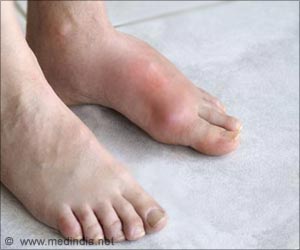Air travel
Other Medical Conditions
People who have recently had a major surgery are advised to wait seven to ten days before a flight, provided there are no other complications. The reason given by experts is that in such patients, the internal gas may expand, rupturing sutures causing hemorrhage or perforation. (For example, intestinal gas expands by 25 percent by volume at a cabin altitude of 8,000 feet.) Medical devices like urinary catheters or feeding tubes that have pneumatic components are affected by gas expansion. Such devices, attached to passengers, must be capped off during takeoffs and landings.
Passengers with a recent fracture in cast or splint can travel comfortably. However, casts made of plaster or fiberglass must be "bi-valved" to prevent circulatory problems. They should be well designed to facilitate swelling in the affected extremity. Many airlines do not permit pneumatic splints; if used, some air must be expelled before departure to allow for possible gas expansion during the flight.
Air travel involves a low-oxygen environment; it is known that in adults, with respiratory disease, it increases the risk of low blood levels of oxygen. In the absence of clear clinical data on the effects of a low oxygen environment on premature babies (who do not have well developed lungs) and neonatals with lung disease, it is best such infants have their respiratory function checked before being taken on a flight.
Patients with anemia must undergo medical assessment before embarking on a flight. Anyone with a hemoglobin level below 8.5 g per dL (85 g per L), as in sickle cell anemia, should have an oxygen supplement.
Scuba divers, who dive only once a day, should wait at least 12 hours after a diving session before flying. Otherwise, they are at risk for developing decompression sickness. For those who undertake multiple dives or others who require decompression stops, an additional time of 24 hours is recommended before flying.
Flying is contra-indicated in people with neuropsychiatric problems like
If flying is unavoidable, expert medical advice should be sought and strictly adhered to. The airlines must be informed in advance and proper permission obtained.
Jet lag, a physiological reaction to traveling long distances in relatively short periods, is common among air travelers. Following a few simple techniques can prevent its symptoms
People susceptible to motion sickness should
Your flying experience can be made pleasurable and comfortable –all you have to do is simply follow medical advice and take a few precautions –so, go ahead and book that ticket!
Passengers with a recent fracture in cast or splint can travel comfortably. However, casts made of plaster or fiberglass must be "bi-valved" to prevent circulatory problems. They should be well designed to facilitate swelling in the affected extremity. Many airlines do not permit pneumatic splints; if used, some air must be expelled before departure to allow for possible gas expansion during the flight.
Air travel involves a low-oxygen environment; it is known that in adults, with respiratory disease, it increases the risk of low blood levels of oxygen. In the absence of clear clinical data on the effects of a low oxygen environment on premature babies (who do not have well developed lungs) and neonatals with lung disease, it is best such infants have their respiratory function checked before being taken on a flight.
Patients with anemia must undergo medical assessment before embarking on a flight. Anyone with a hemoglobin level below 8.5 g per dL (85 g per L), as in sickle cell anemia, should have an oxygen supplement.
Scuba divers, who dive only once a day, should wait at least 12 hours after a diving session before flying. Otherwise, they are at risk for developing decompression sickness. For those who undertake multiple dives or others who require decompression stops, an additional time of 24 hours is recommended before flying.
Flying is contra-indicated in people with neuropsychiatric problems like
- Epilepsy
- Violent or unpredictable behavior
- Recent skull fracture
- Brain tumour
If flying is unavoidable, expert medical advice should be sought and strictly adhered to. The airlines must be informed in advance and proper permission obtained.
Jet lag, a physiological reaction to traveling long distances in relatively short periods, is common among air travelers. Following a few simple techniques can prevent its symptoms
- A good night’s sleep before a flight
- Drink alcohol only moderately
- Eat a well balanced diet
- Adjust to the new time zone soon- remain active during daytime and follow local mealtimes
- Exercise moderately to adapt to the change and to get sleep.
People susceptible to motion sickness should
- Ask for a seat over the wings or by a window
- Choose to fly by a larger airplane
- Not consume alcohol 24 hours before the flight and in flight
- Keep the seat belt fastened
- Have an air bag handy
Your flying experience can be made pleasurable and comfortable –all you have to do is simply follow medical advice and take a few precautions –so, go ahead and book that ticket!


















Post your Comments